The golden age of bi-specific antibodies is here
Bi-specific antibodies (BsAbs) – antibodies that can recognise two different epitopes on either the same or different antigens – have been around for a long time. However, in the past few years we’ve seen a renaissance in the design and application of these molecules.
There are now hundreds of different antibody formats and a burgeoning clinical pipeline, suggesting that a new era in biotherapeutic development is just over the horizon.
Where are we now?
In 2022, the number of bsAb approvals skyrocketed (Figure 1) and this is a trend that seems set to continue. Just last month Talvey – a new bi-specific T-cell engager (BiTE) that binds CD3 on T-cells and the tumour target GPRC5D – was approved for the treatment of patients with relapsed or refractory multiple myeloma. Hundreds more bsAbs are currently in preclinical development and more than 50 have been investigated in clinical trials.

Thanks to the distinct traits of haematological malignancies, such as leukaemia and lymphoma, the biggest progress so far has been made in blood cancers. And it certainly appears that the competition is hotting up in this space.
Two of the largest pharmaceutical companies, Abbvie and Roche, have been in a heated race this year to release their respective anti-CD20 bsAbs for large B-cell lymphoma. In June 2023, Roche’s Columvi (glofitamab) became the second FDA-approved bsAb for B-cell lymphoma, just one month after AbbVie’s Epkinly (epcoritamab) was approved. Epkinly and Columvi are both CD20xCD3 BiTEs, but the two have slightly different characteristics in terms of indication, dosing schedules and administration routes. Only time will tell which will come out on top.
Where are we heading?
Besides BiTEs in blood cancers, there are many other bsAb formats being explored as potential treatments for a range of different diseases, with many researchers looking to crack the next big challenge of treating solid tumours safely and effectively using bsAbs.
Bi-specific killer cell engagers (BiKEs) work in a similar way to BiTEs but instead recruit natural killer (NK) cells to the tumour site and have shown great promise in certain indications. For example, AFM13 – a tetravalent bispecific anti-CD30 × anti-CD16A tandem diabody – is currently being studied in clinical trials for treating CD30+ cancers such as Hodgkin lymphoma.
There is also ongoing research to study the potential of bsAbs that simultaneously block two inhibitory checkpoints expressed on the surface of the same or different cells, as well as co-stimulatory molecules that can aid the immune system response in patients.
With the hope of extending the success of bsAbs in blood cancers to solid tumour indications, some approaches are looking at using bsAbs to target the tumour microenvironment. For example, bsAbs can be used to restrict tumour diffusion by combining the effects of anti-angiogenesis and immune checkpoint blocking.
Other approaches are focused on avoiding on-target off-tumour adverse effects, where the tumour antigen is still present on healthy cells, just at much lower levels. One example is creating bsAbs with a bivalent low-affinity HER2 binding domain that targets HER2-overexpressing tumours and leaves normal tissues with low HER2 expression unharmed (Figure 2).

Overcoming development challenges
Of course, bsAbs come with their own unique development challenges, primarily around safety and manufacturing, that need to be tackled before they can be successfully rolled out in a clinical setting.
Isogenica’s highly diverse proprietary single-domain VHH antibody libraries offer plenty of opportunities to add more functionality while keeping therapeutics small and easy to manufacture. Not only could this help to progress research into solid tumours or difficult-to-treat indications, but it could also vastly improve the patient experience by enabling more sympathetic dosing schedules and improved safety.
If you want to learn how VHHs can be used to build the next generation of bi-specific biotherapeutics, come and talk to us.
Here at Isogenica, we have more than 20 years of experience in antibody discovery and engineering. If you want to discover how VHHs could supercharge your IgG-based drugs, get in touch with our team at info@isogenica.com.
